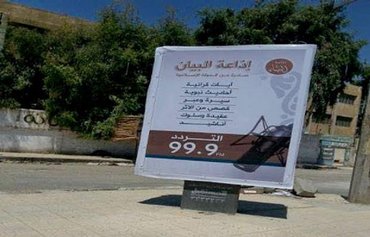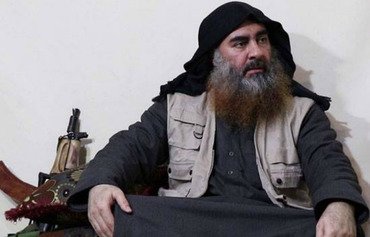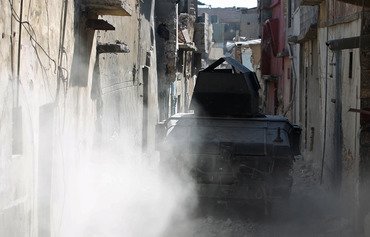The Iraqi Ministry of Defence has been offering cadres of soldiers psychological operations training to help them prevail in their battle against the "Islamic State of Iraq and Syria" (ISIS).
The courses are being taught by Iraqi instructors and foreign experts and consultants, who lecture in the fields of media, propaganda and psychological warfare, said ministry media director Brig. Gen. Tahseen al-Khafaji.
They are set to run until the end of this year, he told Diyaruna.
"Coalition forces equipped us with a distinguished training cadre and technical equipment, as well as advanced research and studies in the psychological sciences," he said.
"The training curriculum is related to how to combat the propaganda and misinformation propagated by ISIS and counter rumours," he added.
It also is concerned with "guiding the trainees and raising their skills and abilities to successfully manage the psychological effects [of war] and choose effective means to weaken the morale of the enemy", al-Khafaji said.
"We hope through this programme to graduate more than 300 to be among the cadres specialised in psychological warfare, and to benefit from their experience in the preparation and training of more members," he said.
This type of training is a growing trend and is set to continue, he added, "especially with the government's interest in this type of training for its influential role in achieving victory over terrorist gangs".
New tactics for the battlefield
During the battle for Mosul, al-Khafaji said, the ministry "followed a new approach, focused on the combination of combat and psychological operations".
This proved successful, he said.
Psychological tactics have played an important part in the battle against ISIS, security expert Saeed al-Jayashi told Diyaruna.
"There are two dimensions to this role," he explained. "The first is directed against the enemy, to weaken the morale of its elements and instill fear and anxiety among them, dismantling them from within."
The second has a "positive dimension", the aim of which is to "sharpen our fighters' minds, clarify their purpose and task, and psychologically immunise them from the effect of the enemy's propaganda".
The government pays great attention to the need to provide psychological support and psychological operations training to its troops, al-Jayashi said.
The new military training programme "represents the first pillar for the construction of a systematic psychological approach in the framework of an integrated plan".
"We are still in the establishment phase of this specialised effort, which we seek to turn into an institutional effort within the military system," he added.
'Qualitative results'
Al-Jayashi pointed to the qualitative results of the psychological operations that accompanied the battle of Mosul.
"For the first time, we managed to apply these operations in the battlefield, and we achieved good results," he explained.
"We were able to lower the enemy's morale through direct messages that pushed many elements to lay down arms and surrender, provoking the rest to reveal their hideouts" and their remaining strongholds, he said.
The Ninawa Operations Command is determined to "rely on the tools of psychological pressure in fighting ISIS elements, due to their great effectiveness in the battle of Mosul", said spokesman Brig. Gen. Firas Bashar Sabri.
"We used several means of pressure in the battle, the most significant of which was the launch of a radio station that broadcast on a frequency that reaches Mosul and its environs," he said.
Iraqi forces later learned from Mosul residents that the station had angered ISIS elements "who wanted to know its location and target it", he said.
"On the battlefield, we sent calls and messages through loudspeakers with a six-kilometre range," he added, which shook the morale of ISIS elements and prompted some of them to break ranks and surrender or try to escape.
The leaflets dropped from aircraft played a key role in reassuring the population and directing them to the safe corridors and areas, Sabri said.
"This success in making an impact motivates us to pay more attention to the psychological side of the fighting," he said, pointing to the critical role of training in this endeavor.

![A member of the Iraqi forces' Emergency Response Division uses a wireless radio outside a humvee during the advance against the 'Islamic State of Iraq and Syria' in west Mosul on May 6th. [Fadel Senna/AFP]](/cnmi_di/images/2017/08/30/9353-Iraq-tank-radio-600_384.jpg)






